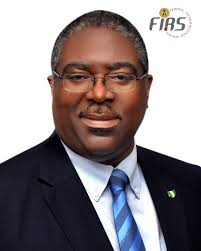The Federal Government on Thursday hinted of plans to extend tax drives to cover carbonated (soft) drinks with a view to using collections from the items to augment collectible revenues required to fund the budget.
The Minister of Finance, Budget and Planning, Mrs. Zainab Ahmed, disclosed this during an interactive session with journalists at the ongoing Annual Meetings of the International Monetary Fund (IMF) and the World Bank in Washington DC.
Ahmed, who explained that the new tax was part of plans by the government to widen the revenue net, said that the recent closure of land borders was partly informed by the need to plug leakages in the nation’s tax system.
She clarified: “We are also looking at introducing excise duties on some categories of products, especially carbonated drinks and VAT on some categories of imports into the country. But, it is not all tax increases; there is also a proposal to build tax rates for SMEs. We also increase the minimum tax level to make it easy for people to plan their taxes.
”In Nigeria, we don’t have adequate social contract. The government was not asking for or enforcing tax collection and, therefore, taxpayers also were not taking up their civic responsibilities. This is because we are largely dependent on oil revenue and people are not used to paying taxes.
“Very recently at the Nigeria economic summit, they shared a citizens survey and 75 per cent of people that was surveyed said ‘we don’t think there is anything wrong in not paying taxes and it is not a problem’ and there was a few that said ‘I don’t see what the taxes are used for. So, why should I pay tax’?
“We have a very low tax morale. We are planning a strong strategic communications process to educate people on why they need to pay taxes. Because we rely heavily on oil and it is not going to be there forever. So, we have to boost domestic revenue generation and use tax revenue to develop their economies and Nigeria should not be an exception.
“We currently have a pervasive revenue generation problem that must change to successfully finance our development plans. Speaking to the facts, our current revenue to GDP of eight per cent is sub-optimal and a comparison of oil revenue to oil GDP and non-oil revenue to non-oil GDP performance reveals the significant area that requires immediate and dire intervention in the non-oil sector’, the minister stressed.
Ahmed pointed out that this performance attested to the realities of the country’s inability to efficiently and to a reasonable degree, completely collect taxes from our non-oil economic activities.
Noting that when compared with its peers, Nigeria is lagging on most revenue streams, including VAT and excise revenues, the minister lamented further that apart from having one of the lowest VAT rates in the world, the country also is contending with weak collection efficiencies.
She also spoke on sundry incentives and deductions that government is granting that further constrains the fiscal space but given to stimulate industrial growth and reduce hardship for the poor and vulnerable in the country.



